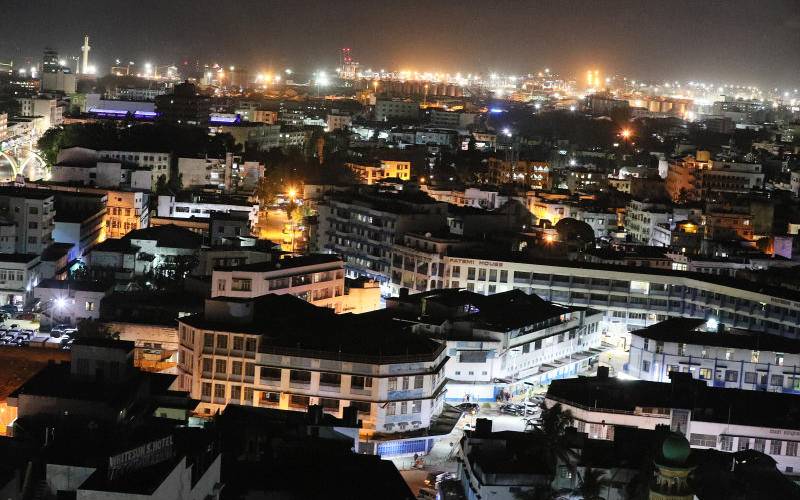
As the muezzin makes a final call for the Maghrib prayers, Mombasa is bustling. With some of its peers clamped down in a bid to control the devastating effects of the third wave of infections from the coronavirus, tuk-tuks zoom past loud 14-seater matatus to fight for that extra client that will determine whether the day will end in profit or loss.
Men, who know each and every crevice on the faded asphalt on the city roads, cut up deep-fried cassava and pack them in brown paper bags for mothers hurrying back to their homes. With a squeeze of lime and a sprinkle of chili, they dash off into the darkness.